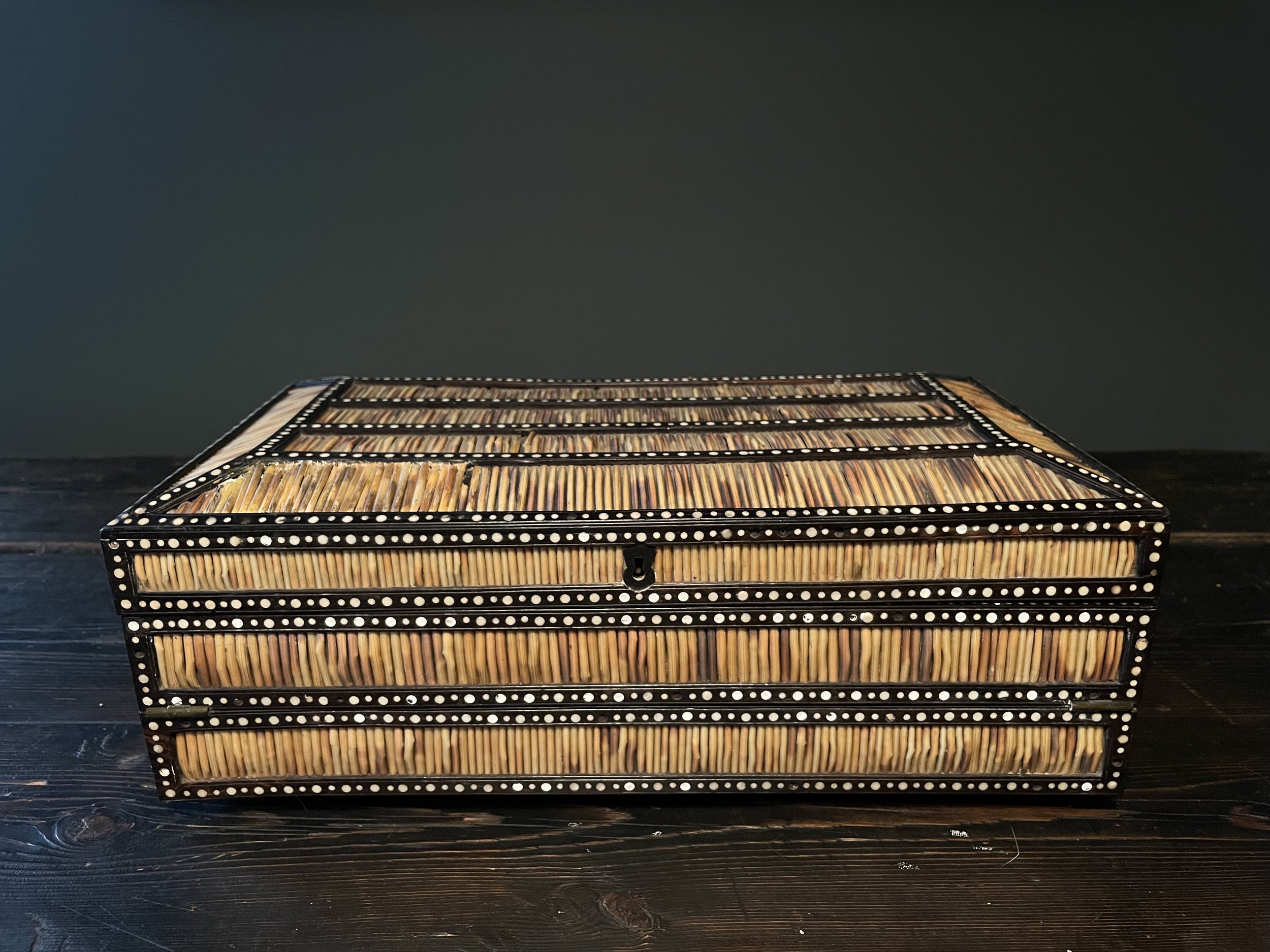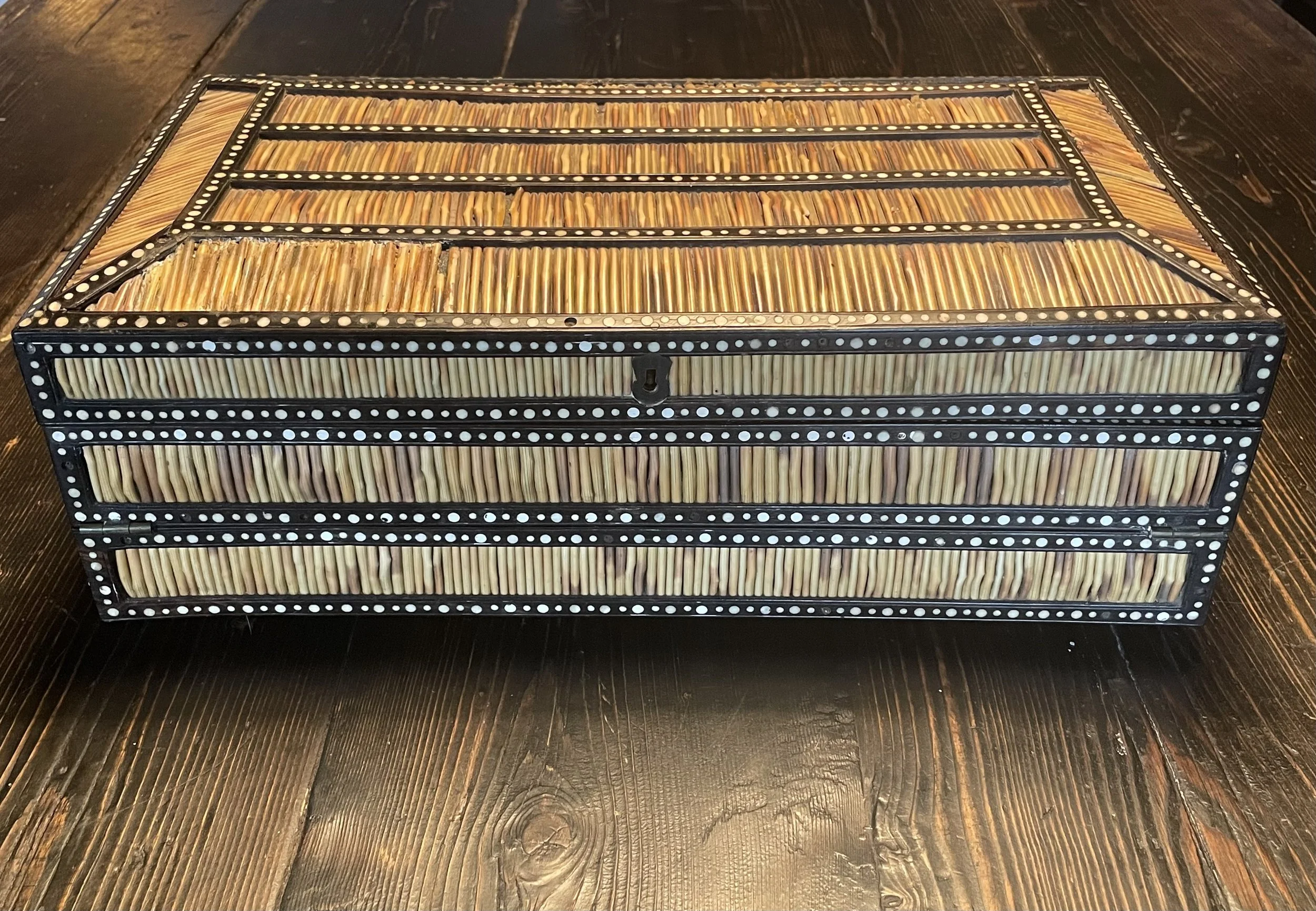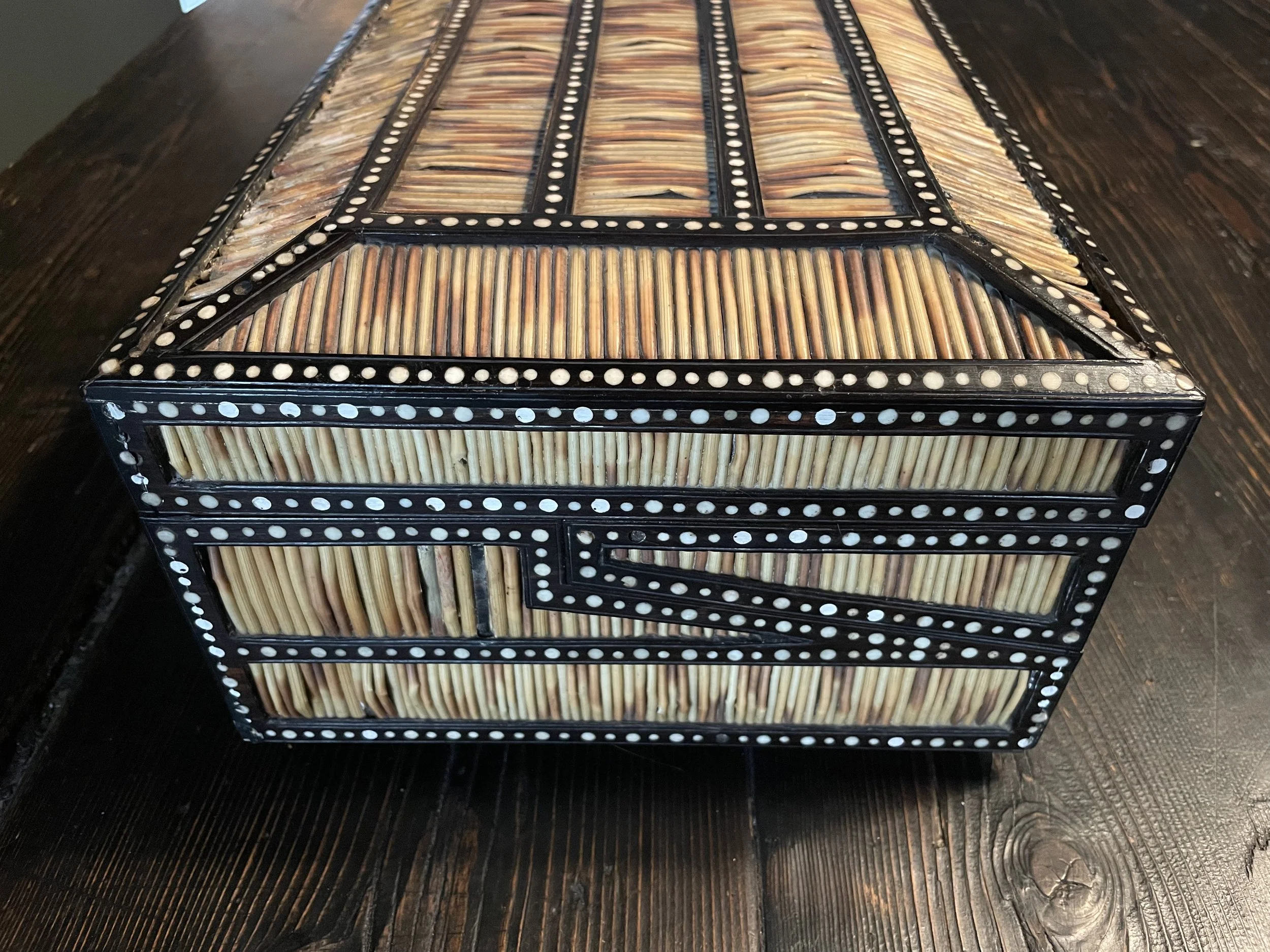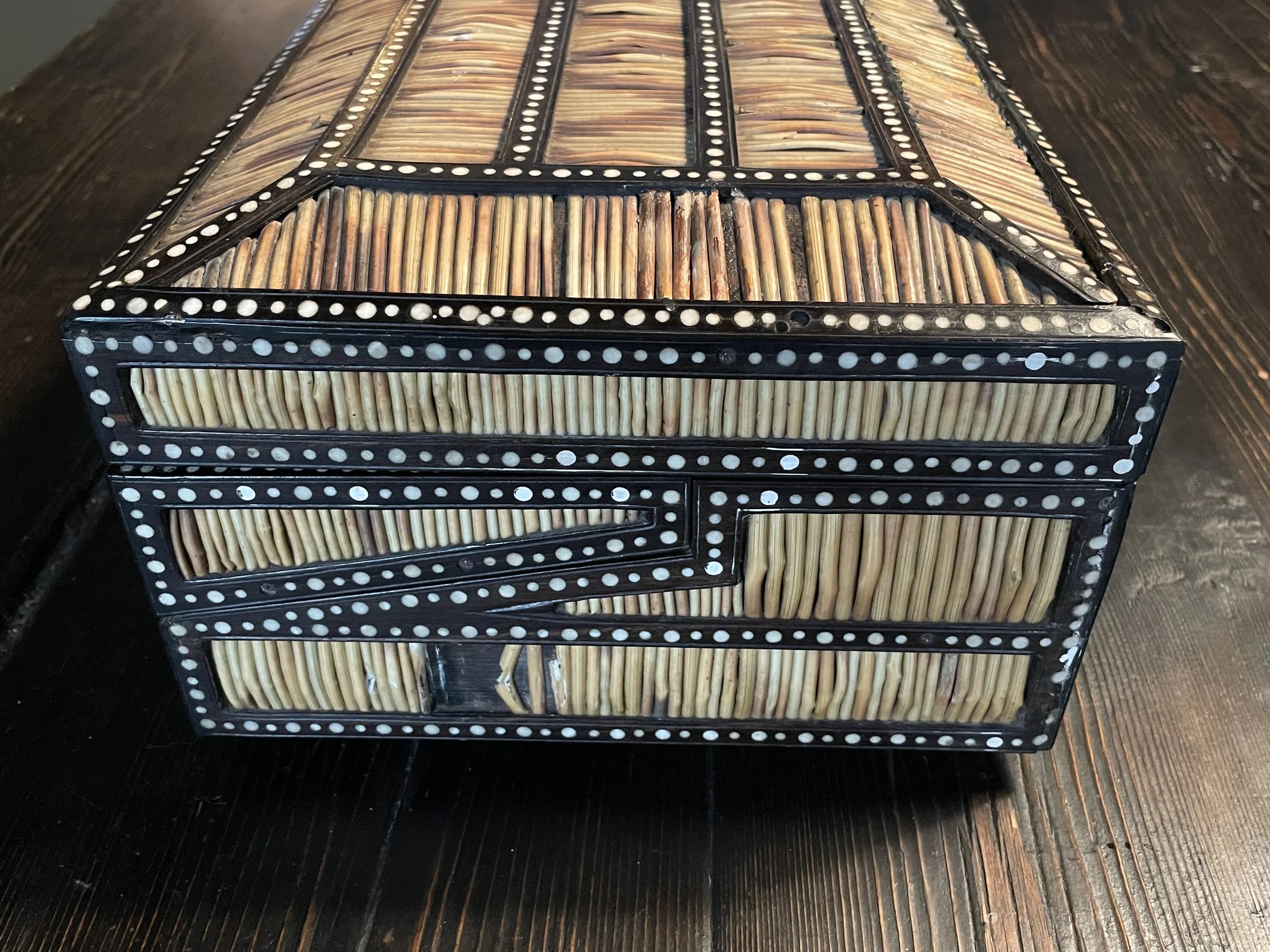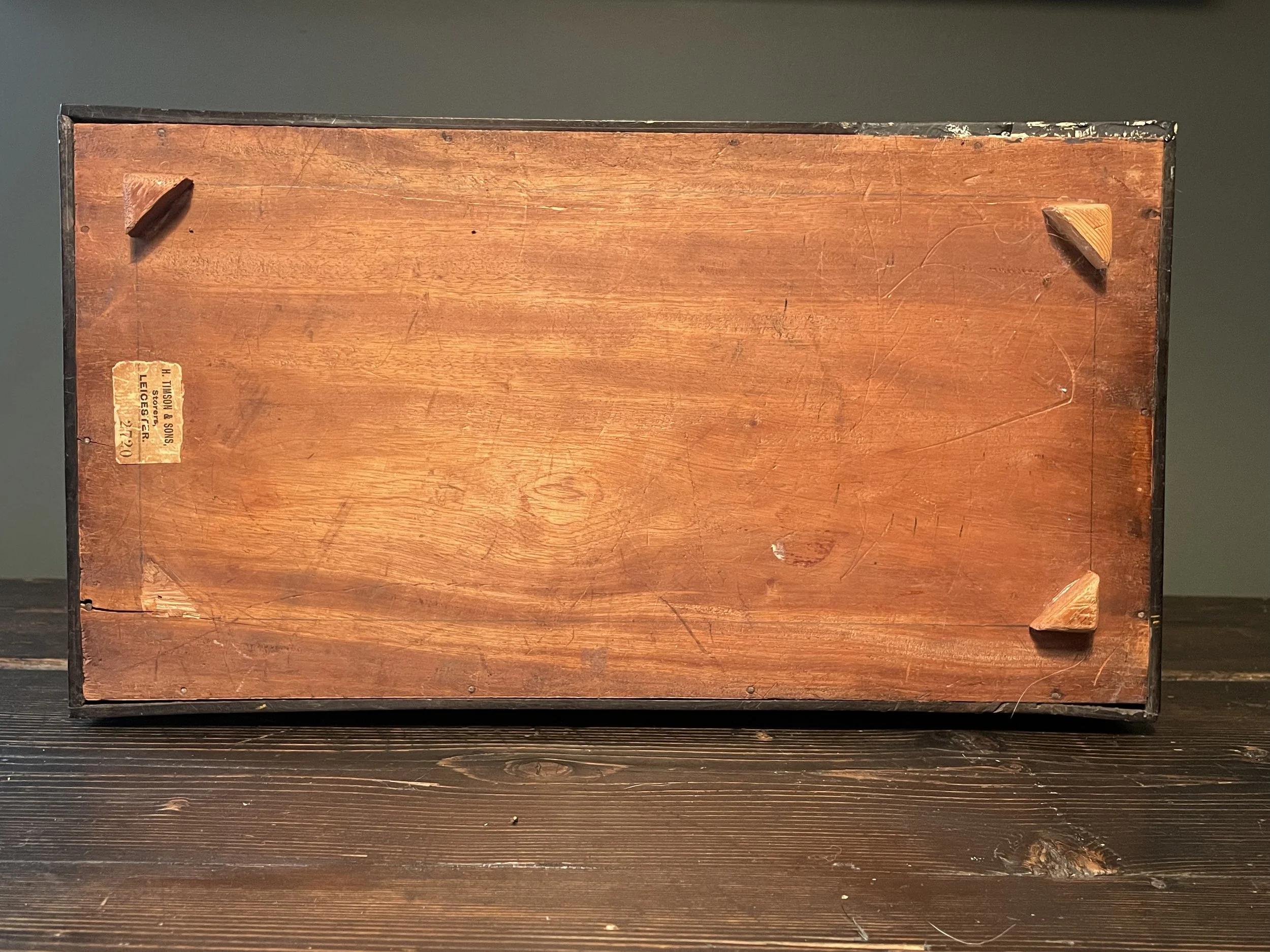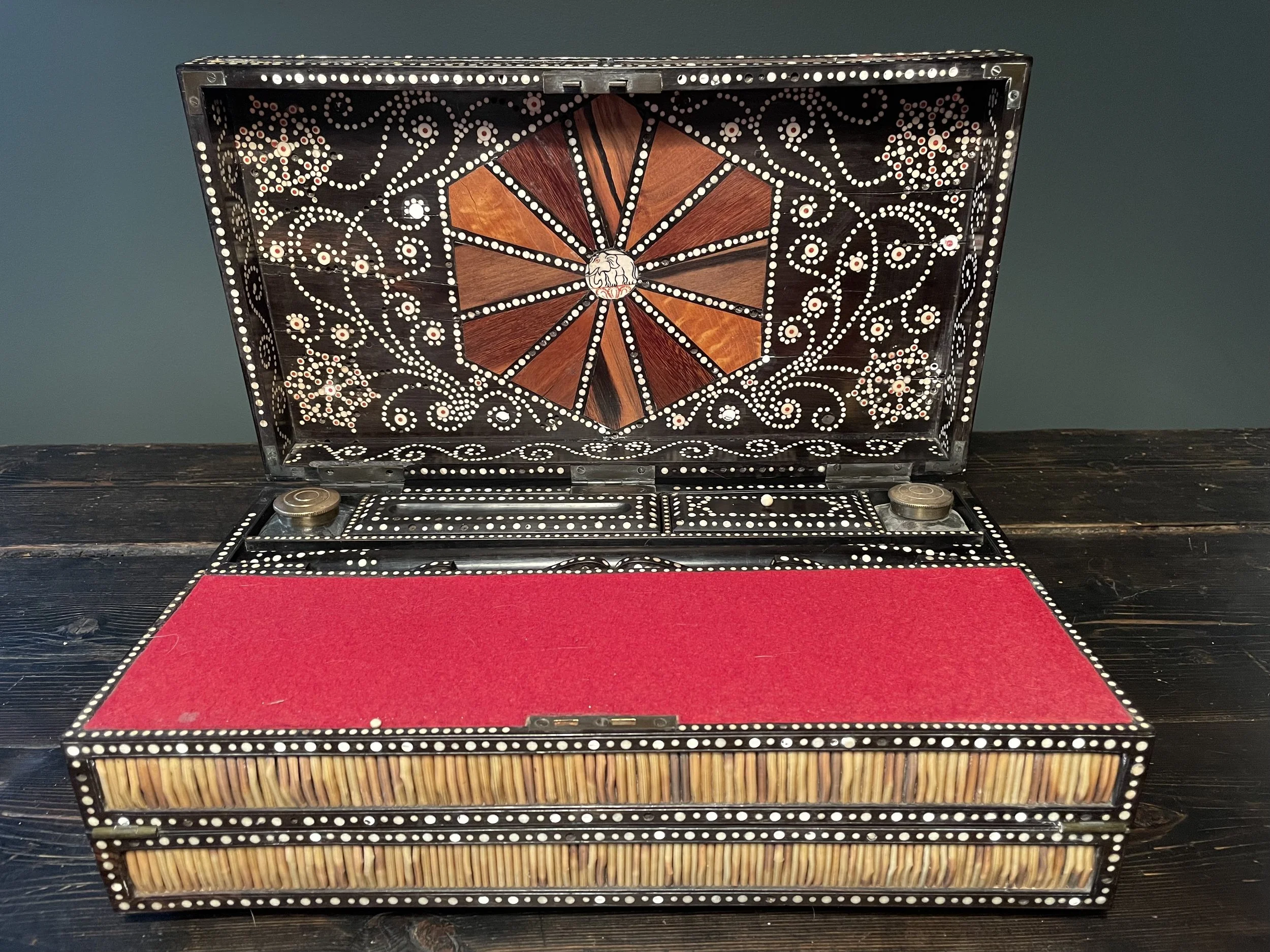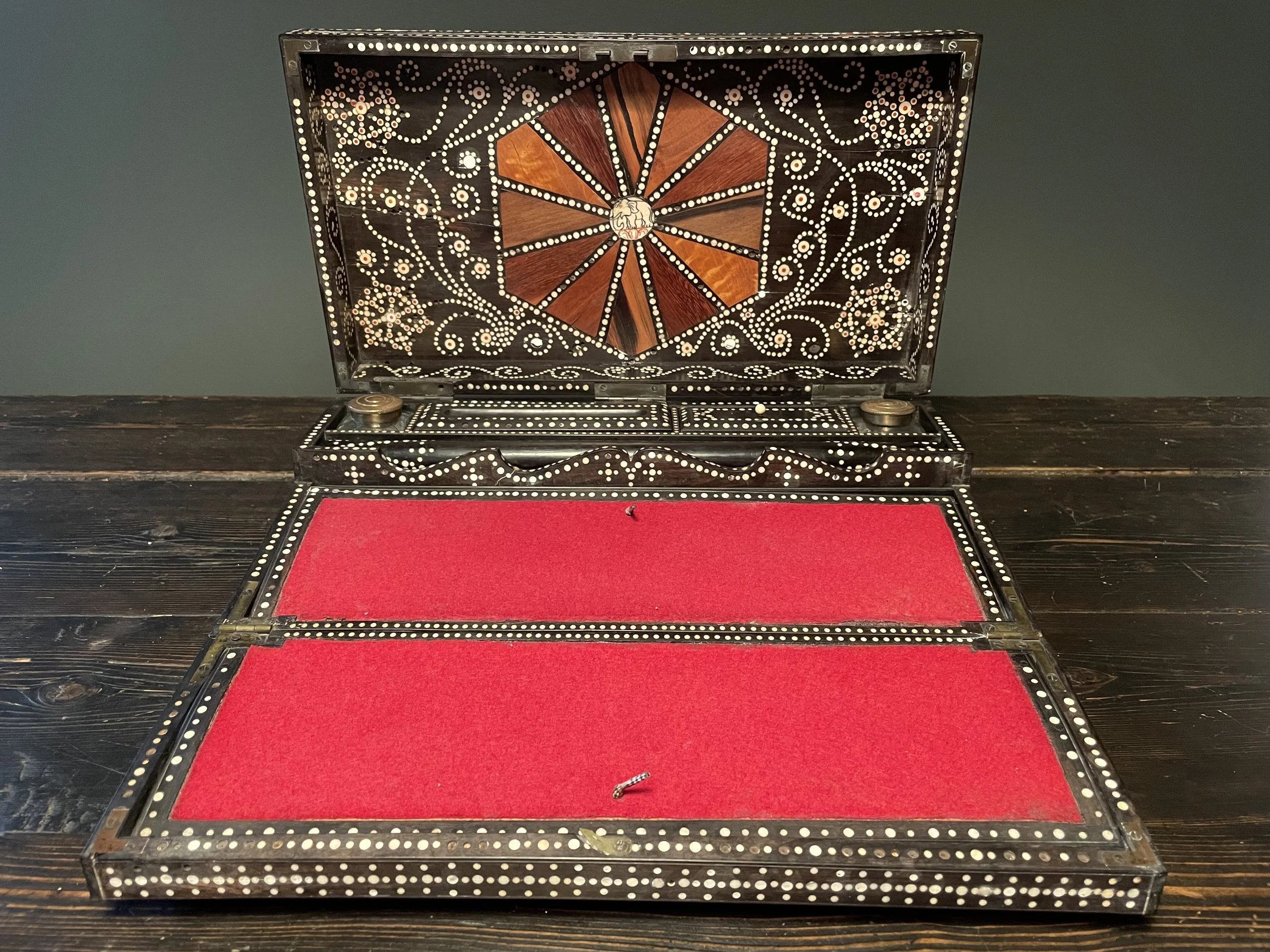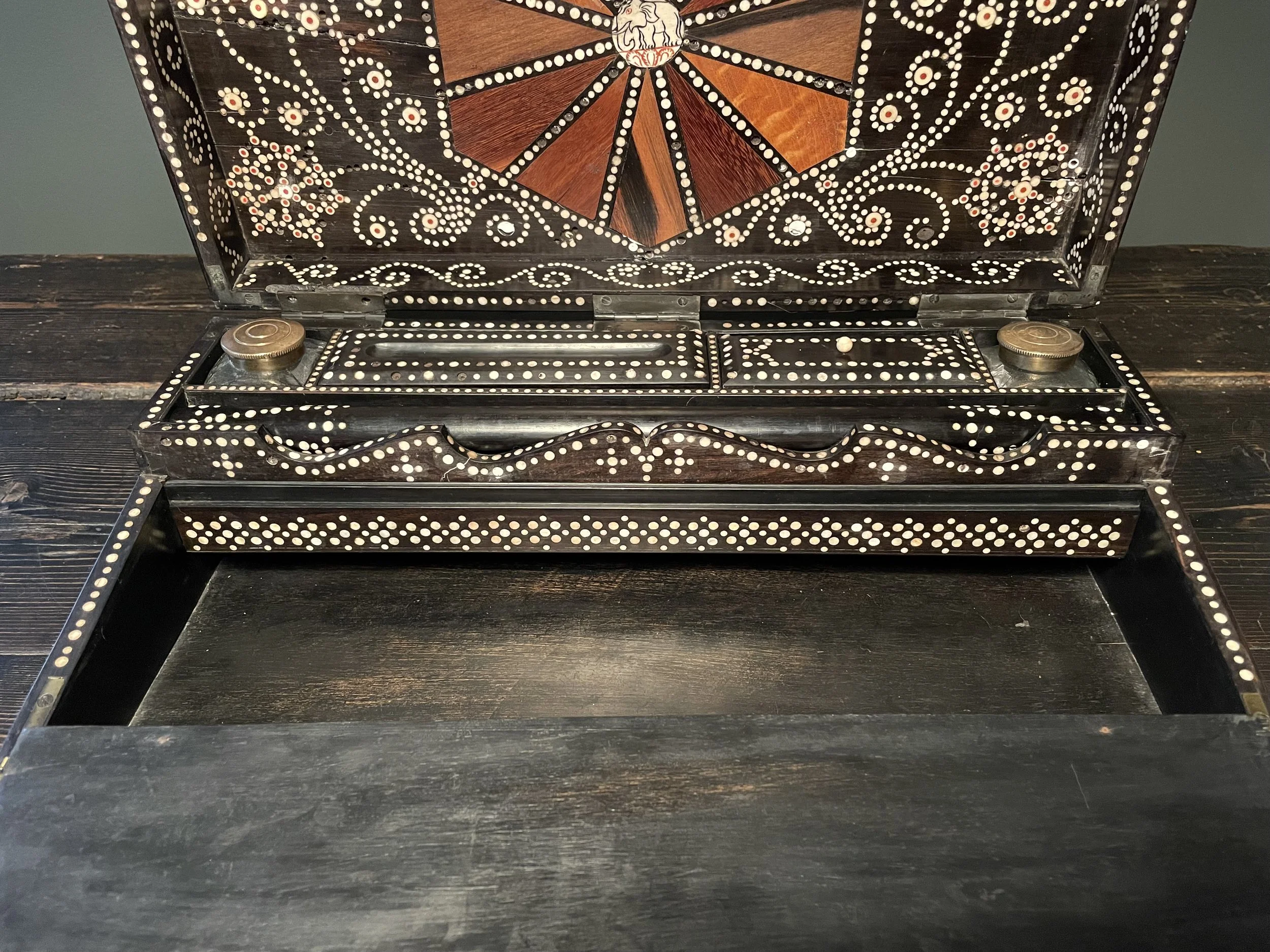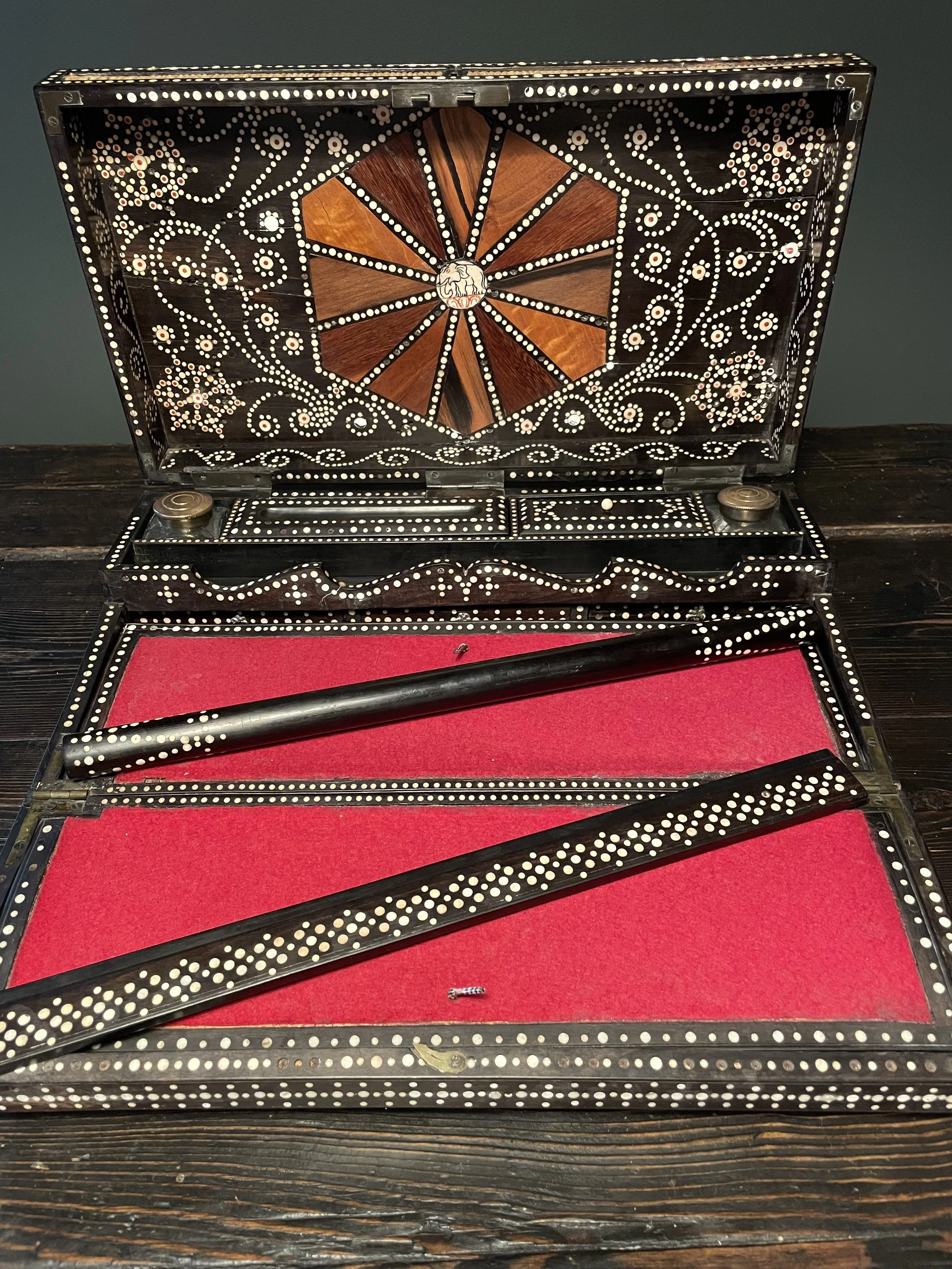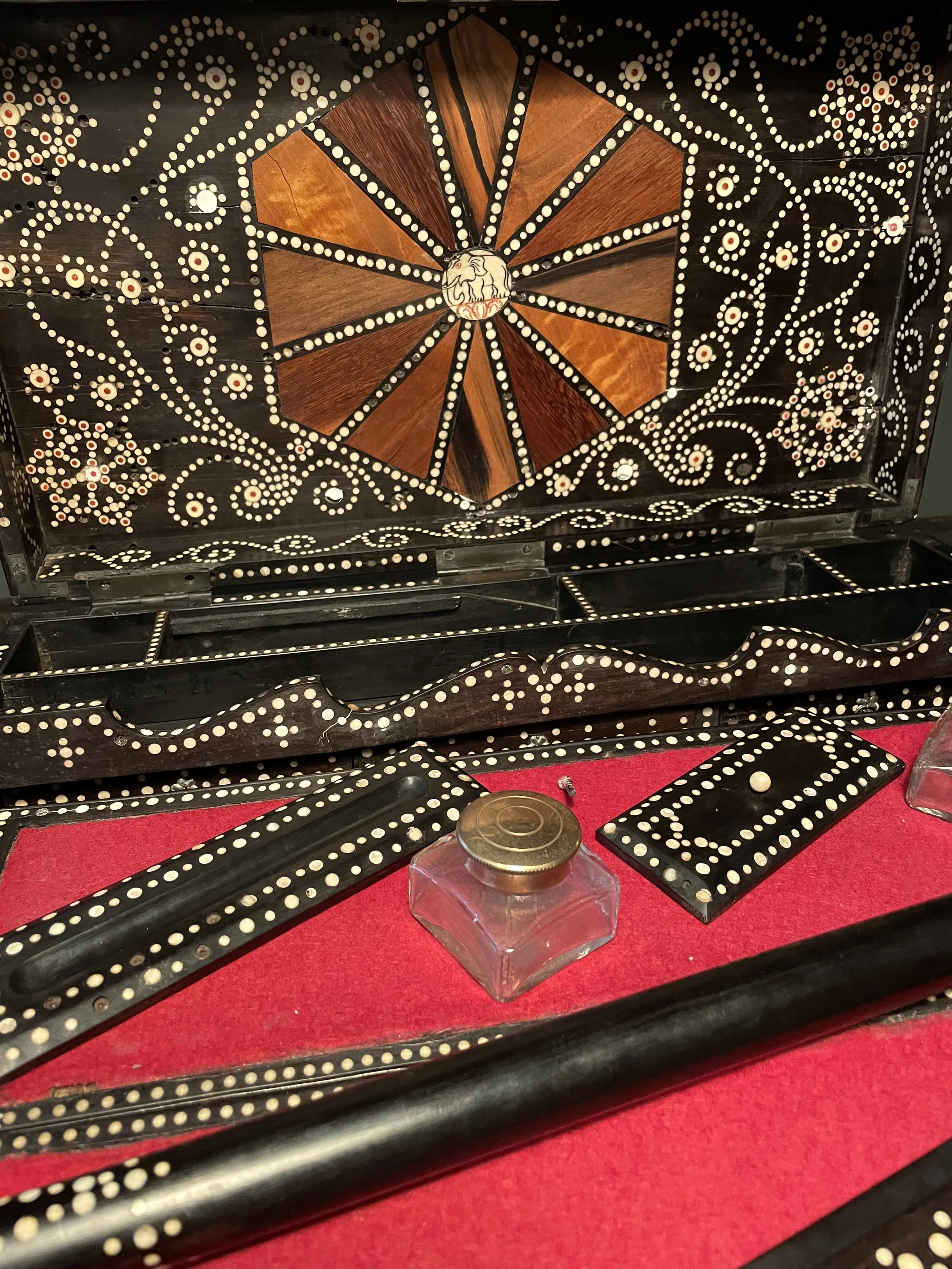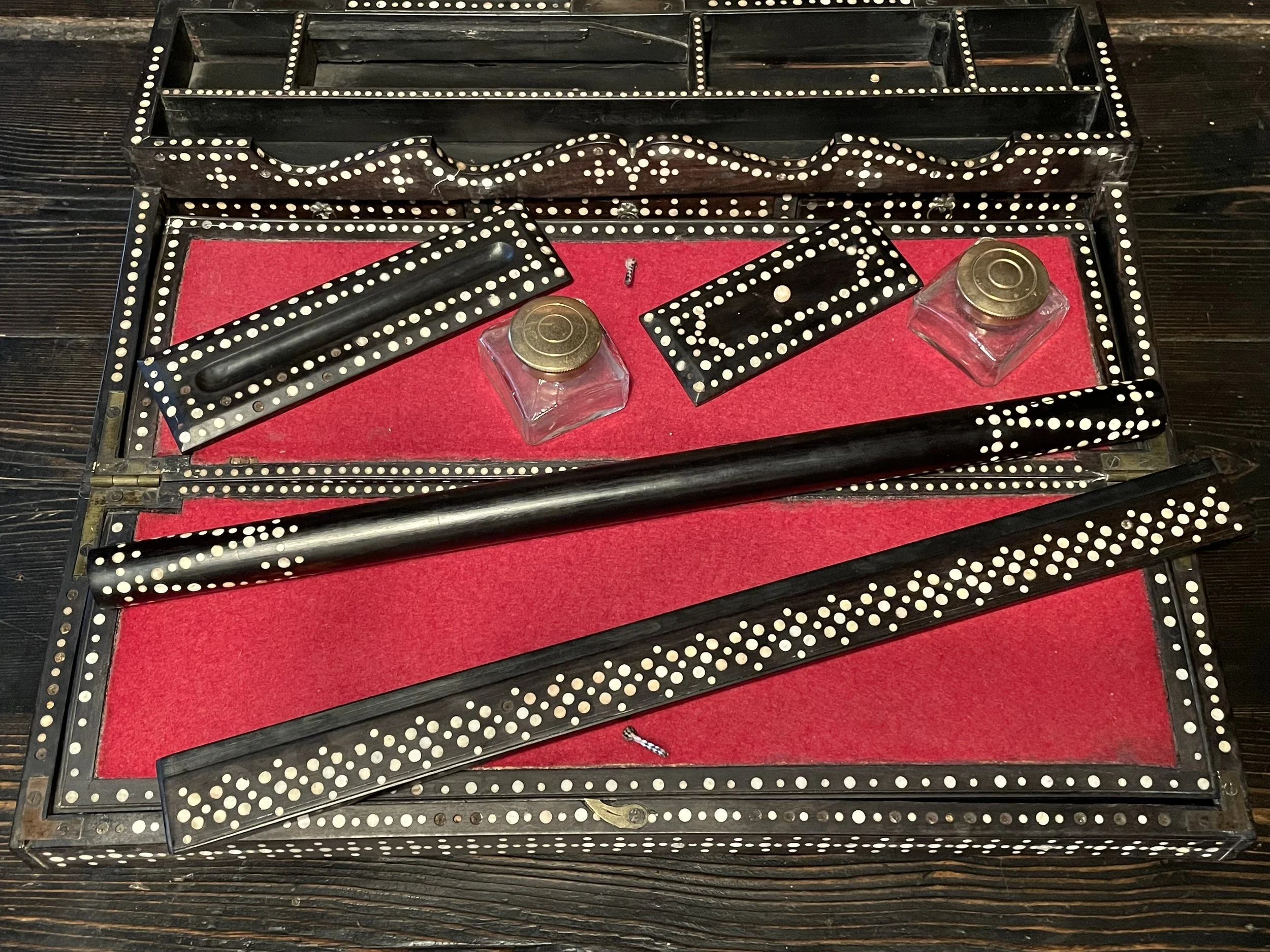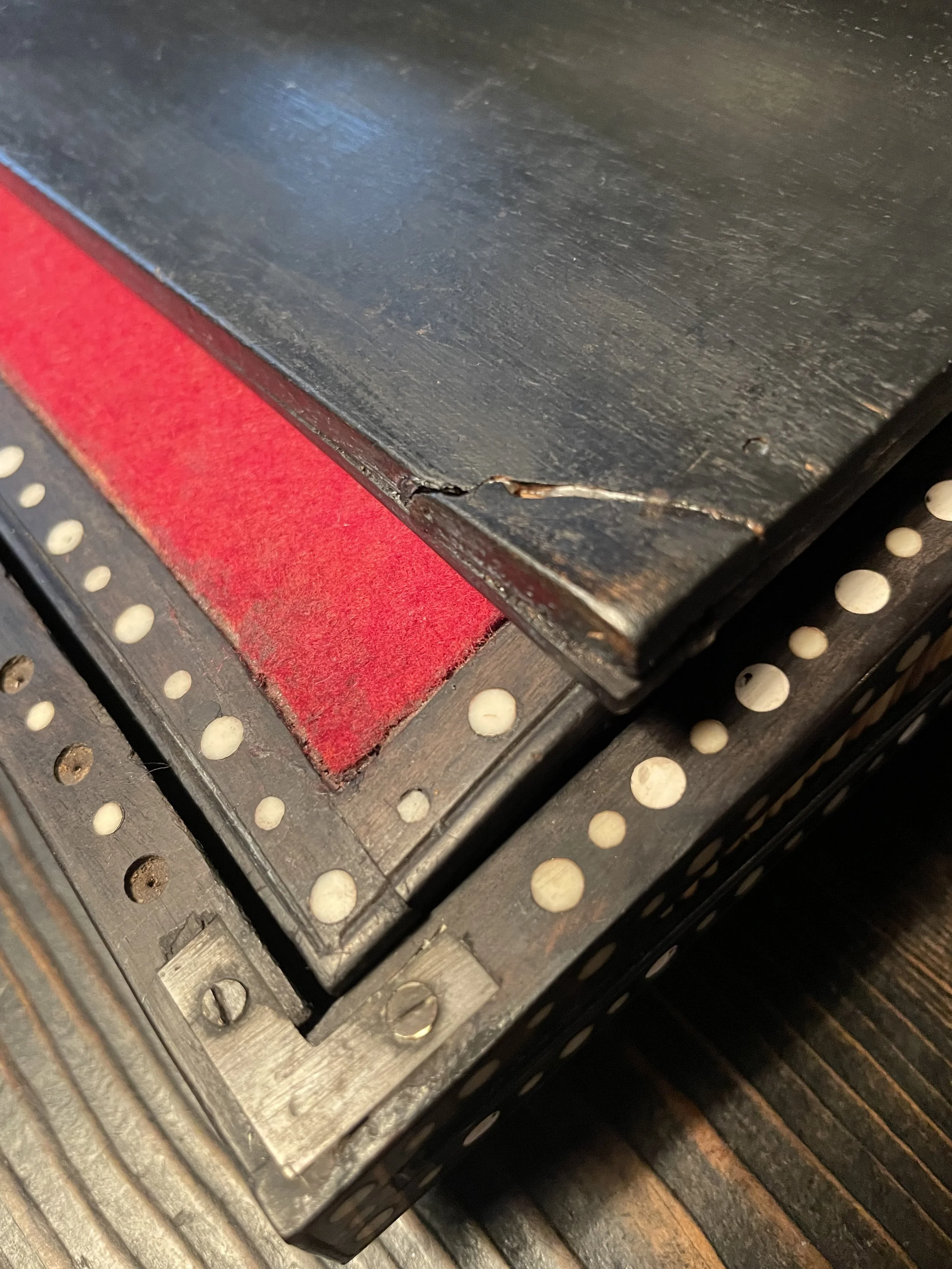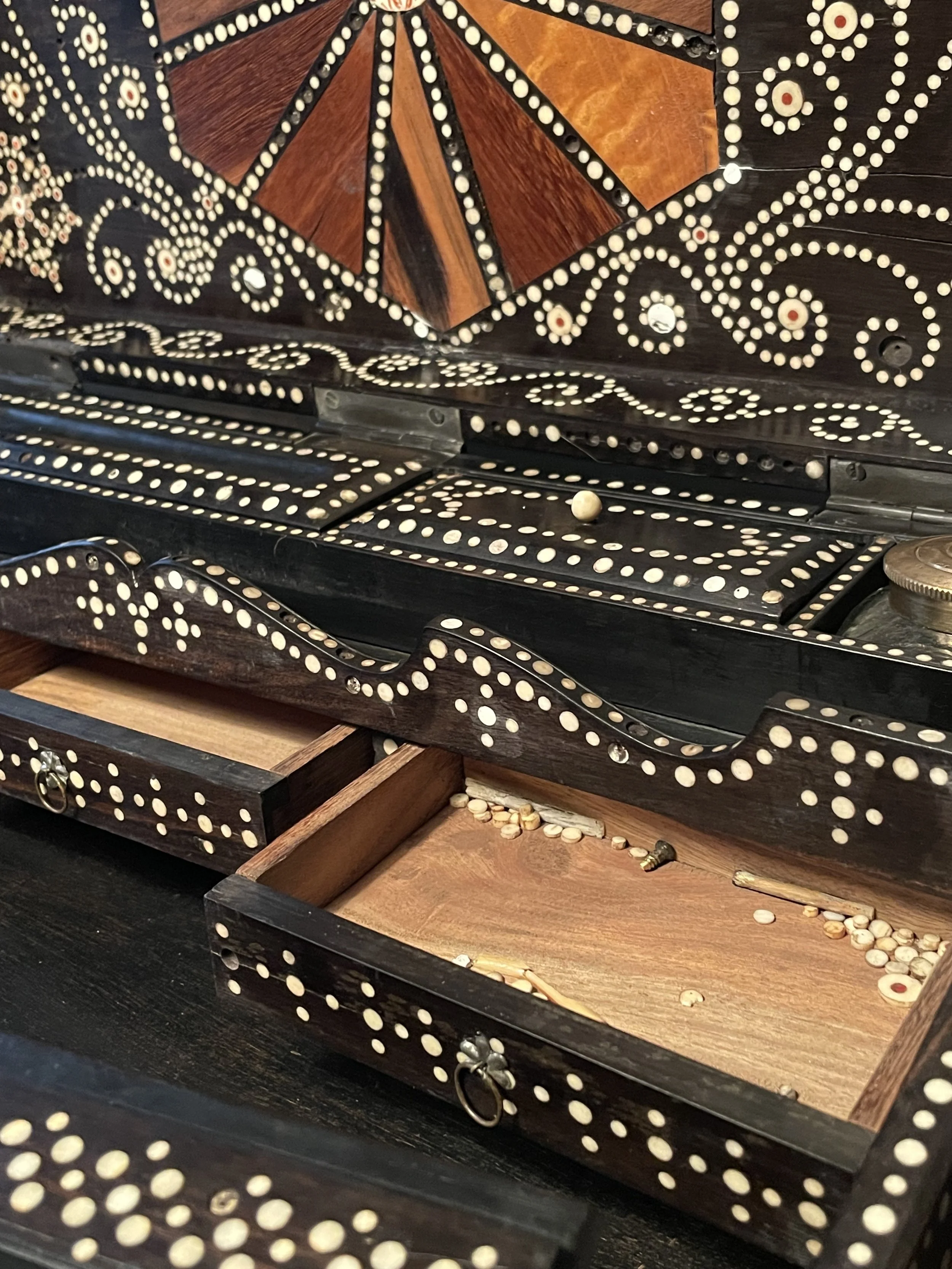An Anglo-Indian Porcupine Quill, Ebony and Bone Inlaid Writing Box, Circa 1890
An Anglo-Indian Porcupine Quill, Ebony and Bone Inlaid Writing Box, Circa 1890
Rectangular, with pitched lid, the top and sides inset with rows of overlaid porcupine quills within ebony borders, the lid opens to a felt lined writing surface that further drops down and encloses two lift-up stationery compartments, one of which opens to reveal three small drawers and a removable inset rule, behind which are fitted compartments with a pair of inkwells, pen tray, etc., and a removable ebony rod for rolling documents. The underside of the box features an attractive pattern of inlaid scrolls and radially veneered specimen woods.
Height: 6; Width 16; Depth 9 inches.
These boxes were made in Ceylon (now Sri Lanka), prediminantly in the southern Galle District, and were British-style writing boxes owned and used by British residents in India and Ceylon. Tables, boxes, bookcases and other furniture was also made in this technique, examples of which, including a writing desk, were exhibited at Colonial and Indian Exhibition of 1886, and also at the Paris Exhibition of 1900. Examples of similar boxes are in the collections of the Victoria and Albert Musuem, London, and the Peabody Essex Museum, Massachusetts.
Literature:
See Amin Jaffer, Furniture From British India and Ceylon, 2001 pp. 376-77 for similar examples illustrated.
Condition:
Remarkably complete and impressive in scale, a good quality and early example but it does have some condition issues and areas of old restoration. There are numerous quill pieces missing, several large areas of restoration to the quill (particularly to the rear panel on the lid), other chips, age cracks and small losses, and numerous bone dots are missing, some of which are retained in a drawer. The fitted areas are holding but not completely sturdy and would benefit from some stabilization. There is one foot missing to the underside. The red baize/felt linings are replacements and the large stationery compartment flaps which lift up have later pulls. The box overall would benefit from some further restoration but is attractive and ready to display as is. Further images are available on request

